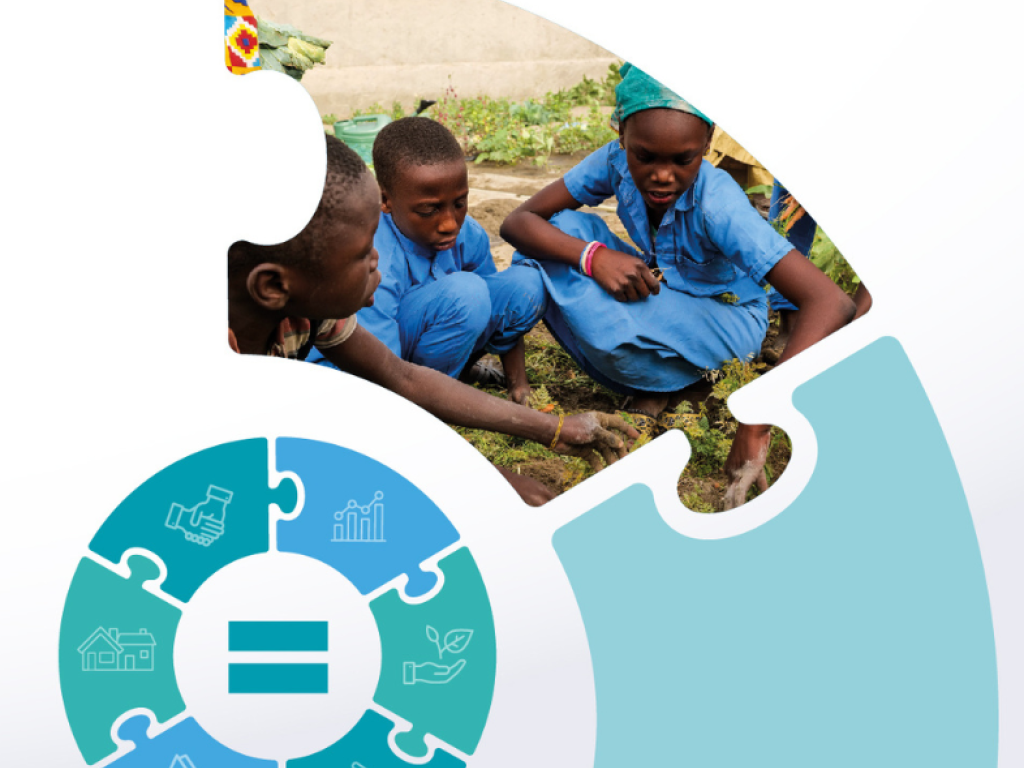Join us at the Inequality, Work, and Nature conference, 8 – 9 November

This conference is part of a research partnership between the Agence Française de Développement (AFD) and the European Union through the Extension of the EU-AFD Research Facility on Inequalities to study the interactions between inequality, environmental change, and sustainability. This research is aimed at supporting governments in designing policy actions to meet these interdependent challenges.
The Extension of the EU-AFD Research Facility on Inequalities has been focusing its work on four selected countries: Colombia, Indonesia, Mexico, and South Africa. The AFD – a key partner of ACEIR – works closely with the South African government and local research centres to provide relevant research insights on how to support the reduction of socio-economic inequalities while addressing the challenges of low-carbon transition.
Day 1 of the conference showcases research on the strategic dilemmas that appear when designing long-term development trajectories that are both ecologically and socially sustainable.
Highlights include:
- The opening plenary will discuss coherence and implications of the overarching objectives of reducing inequality, eliminating poverty, and engaging on net-zero pathways – including input from the South African Presidency and the Overseas Development Institute.
- A policy panel in the afternoon to discuss the role of research and evidence in the policy processes that shape the just transition, but also in the building of social constructs needed for ecological transitions more broadly. Including input from AFD, the European Commission, and the National Treasury of South Africa.
- Parallel sessions 1, where four research presentations will be made in each parallel session, focusing respectively on:
1. Energy transitions and institutions: An analysis of the just transition pathways and their implications.
2. Conceptualising sustainable and inclusive pathways: Definitions and conceptualisations of the just transition in low- and middle-income economies.
3. Climate policies and redistribution: Ensuring a fair distribution of environmental taxes and spending.
4. Labour market specificities and the just transition: Employment implications of the just transition.
- Parallel sessions 2, where four research presentations will be presented in each parallel session, focusing respectively on:
1. Can there be a ‘sustainable’ economic recovery? Assessing evidence of the impact of economic recovery policies and identifying the implications for a sustainable economy.
2. Just transition policies and inclusion: How could different industrial and development policies shape the just transition?
3. Environment and inequality: Interactions between inequalities, environmental degradation, and environmental protection measures.
4. The wealth divide: The racial dimension of wealth inequalities and the role of perceptions.
- Parallel sessions 3, where four research presentations will be presented in each parallel session, focusing respectively on:
1. Profiling multidimensional vulnerability to climate change impacts: How socio-economic and climate change policies have affected livelihood trajectories of different groups in society.
2. Social perspectives of ecological transitions: The socio-economic effects of ecological transitions in various contexts.
3. Spatial inequalities and ecological transitions: The various dimensions of spatial inequalities that policymakers need to focus on in the design and implementation of environmental transitions.
4. Climate mitigation and inequality: The issue of climate mitigation and inequality, and its implications for national climate mitigation policies.
ACEIR’s research will be presented in different slots of parallel sessions 2 and 3.
Day 2 engages high-level government officials and practitioners from especially the Global South to deliberate on specific and meaningful concessions aimed at shaping policy solutions.
On the agenda are:
- A discussion with climate activists on the urgent need to fight climate change and advance social justice.
- Four panel discussions with high-level representatives from different governments and international development agencies, civil society, and the business sectors, focusing respectively on:
1. How are labour markets adapting to net-zero pathways? The role of workers in a net-zero economy and the support mechanisms that can be put in place to ensure a smooth and equitable adjustment. Input by the International Labour Organisation, the South African Presidency, groundWork.
2. Inequalities and climate change – the interdependent imperative of the age: The opportunity to integrate sustainable social and economic objectives with more climate-aligned production and consumption patterns. Input by the South African government, African Climate Alliance, Overseas Development Institute.
3. Inequality of emissions between and within countries and financing mechanisms: What mechanisms and policies can guarantee this transfer of resources, and what are the national and international responsibilities and potential responses? Input by the Organisation for Economic Co-operation and Development, the AFD, and the governments of South African and Colombia.
4. Challenges and opportunities of a just transition: Reflecting on the implications of a just transition in low- and middle-income countries and share the learnings of South Africa’s Just Energy Transition (JET-P) to date. Input by the South African Presidential Climate Commission, South Africa’s National Business Initiative, and the EU.
Several conference side events will take place during the week of the conference.
While space is limited for in-person attendance, all sessions of the conference will be livestreamed.
Visit the conference website for the agenda, list of speakers, and in-person registration and livestream details.
